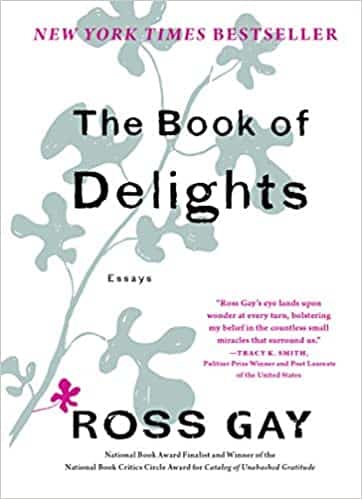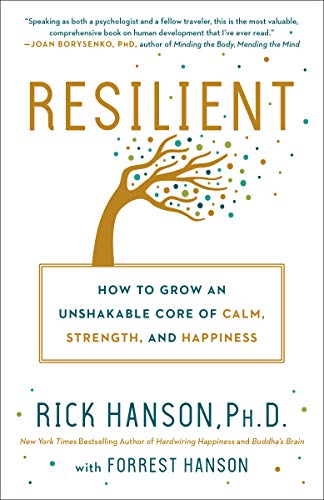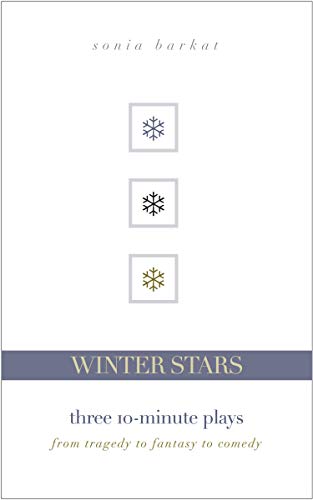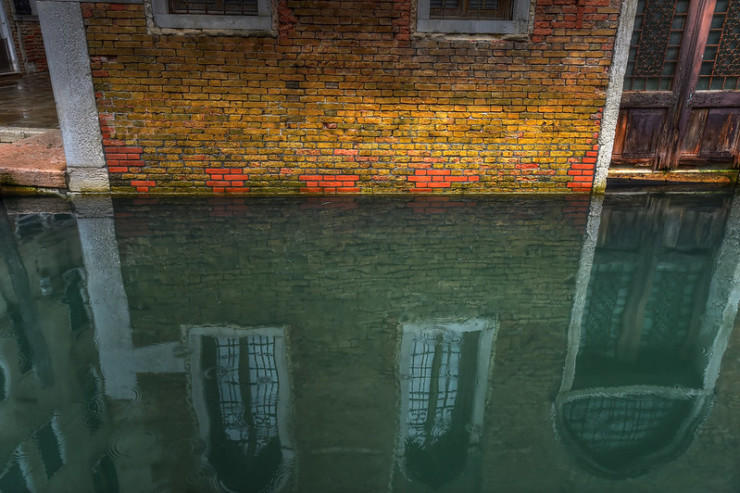The lake I live on is not very large. In one area very near my door, there’s a bridge, though it’s really more of an overpass for traffic on O’Connor to cross over. On each side of the overpass, and on each side of the lake, there are stairs. Four corners, you could say. When I go out the back way to walk, there is always the choice to be made: Keep walking or go up the stairs. And if I go up the steps, another choice: which side to go back down.
Each option gives me the lake, but a different portion of it. One goes to the canal, an old-world designed area complete with the occasional gondola (and singing gondolier). One goes the long stretch around. One goes around the lake and ends in a little entertainment venue lined with interesting restaurants and bars and makes for a different sort of walk home.
I opted for the canal, which meant going up, crossing over, and going back down. As I was walking under the bridge, I met a large bird standing on the edge, looking at himself in the water. Or maybe he was just standing there looking at nothing and I’ve read too many fairy tales. He might have been a heron. Large, white, and to my mind, an elder. I have no proof of this, and I’m no ornithologist. If you had seen him, I trust you would have thought the same. His tail feathers were a little tattered, with long, thin threads hanging behind.
This one spends a lot of time here under the bridge. I stopped to admire him, giving him a fair amount of distance but was still close enough to have exchanged words in a very low voice. There is a lot of foot traffic around the lake, and few of the birds pay us any mind. He put up with me for a while, and then decided he’d had enough. His massive wings (it was unexpected, the broadness of this span) unfurled in slow motion with a lot of noise, and he pushed himself forward, dipping down to the water. As soon as he hit the surface, he turned himself around and clambered back up onto the walk. He looked a little—maybe a lot—like a toddler toddling over into the wading pool, having forgotten that water is wet.
*
There were three quinceañera parties on the canal tonight. By which I mean the families, not the celebrations. It’s common to come to the canal for photos before the party. The old world architecture, the stone pavement, the possibility of one of those gondolas passing through make it a perfect place to memorialize your coming of age.
The fiesta de quince años (celebration of 15 years) is a rite of passage not so prevalent in broader American culture, though still very much a part of growing up in Latinx communities. Sure, there is the Sweet 16. It’s not the same thing. The quinceañera historically marked the transition to young adulthood, a sort of introduction to the world of suitors a father would make of his daughter, after she’d been properly tutored in the domestic arts.
Tonight three young women stood at the edge of the canal and the precipice of the rest of their life and it all stood still, the light at dusk a nearly perfect golden fineness that lit up their big fancy dresses around their lacy edges.
*
Back at the plaza by the restaurants the fountains were on. The little ones that stay close to the ground so kids and dogs run around in them. A mother sat on the bench holding someone’s ice cream, probably not hers. She wasn’t eating it. Just holding it in that way the looks like it’s melting a little and she doesn’t want it to get on her. Her daughter was running around in the fountains. And then the girl stopped, bent all the way over and put her head right in the jet, spraying her full black hair. And then she threw her head—no, she threw her whole body—back in a single, fluid arc, water flowing out of her hair and shooting into the sky, following the glorious arc of her body and there wasn’t a single film crew to catch the magic of it all.
*
In Ross Gay’s No. 44. “Not Only,” he writes of a peacock in a friend’s yard:
[…] dark turquoise, which would be a lamentable shorthand, for the iridescence makes it another color entirely, and reminds us how all color is manifestation of, a meditation on, light, these mediations echoed or multiplied in the gauzy oculi looking skyward from its long tail, but Ingrid’s need to share the photo with me as I was walking toward the buffet at Samira, the Afghan place, almost tugging me by the elbow to do so, using her index finger and thumb to zoom into its luminous neck, smiling and looking at it, smiling and looking at me looking at it, me smiling and looking at her looking at it, which is simply called sharing what we love, what we find beautiful, which is an ethics.
We share what we love, and we want others to share it with us. I think this is a beautiful thing. To add an ethic to that, I like it.
In No. 49, “Kombucha in a Mid-century Glass,” Gay riffs on love, race, capitalism, class, psychology and more. But what he says about the drinking glass? Priceless.
[…] last night I was sitting on the couch drinking homemade kombucha from a mid-century, probably a fifties-style, water glass, maybe a six ouncer, with a light blue floral pattern. I have questioned my growing affinity for some of the aesthetics of that era, the fifties, the not-so-good old days, as a kind of aesthetic of whiteness when I remembered my Papa’s house in Youngstown with the rhubarb plants out back, mid-century par excellence. Aunt Butter’s more or less the same. I did not expect this delight to illuminate my afflictions like this.
Anyhow, the booch had just the right sweetness and fizz—I could feel my tummy’s trillion flora fornicating as it went down. And the glass was small enough to both encourage moderation and highlight the pleasure of the refill, a pleasure, it is important to note, that has an inverse relationship to the size of the vessel. This probably explains why when drinking a muscadine wine, the only wine I actually like, and a “country wine,” conveniently fitting into my whole class drama, I more or less require a small glass, six ounces or less, ideally with a floral pattern painted on that you can feel when you run your fingers over it, the fermented elixir inside somehow doubly dignified by the humane, by which I mean handmade, aspect of its holding.
Would it surprise you to know that at certain times I drink my sparkling water from a two ouncer? A shot glass. It requires frequent refilling and it changes the experience of drinking entirely. It becomes a thoughtful process, one in which you do take the time to consider the shape of the bottle, the shape of the glass, even its origins, perhaps, most certainly the feeling of every single one of the thousand tiny bubbles on your tongue.
And then No. 40, “Giving My Body to the Cause.” Gay tells the story of participating in a march in New York City. Somewhere along the way, a child was separated from his mother in this sea of bodies.
We determined, after asking what his family was wearing […] to toss him up on my shoulders where he might be more visible to his family and they to him. His hands rested lightly on my head and I held his shins and patted them yelling up to the kid I couldn’t see, “Don’t worry!” I could feel him shaking at the enormity of the gathering, at which a bunch of mommies gathered around the child on my shoulders to care for him, looking up: “You’ll be okay” and “We’ll find your mommy, don’t worry” and “Do you need a hug?” None of which prevented this kid from sobbing at how many mommies we were, how tiny he was in the midst of this mass of mommies, who quite spontaneously erupted into the chant FIND HIS MOM! FIND HIS MOM! which brought his mother forth—There you are!—everyone weeping at their reunion, the boy hopping from my shoulders and into his mother’s arms, where they held each other for several seconds, the boy wrapping his legs and arms around his mom, his mom putting her hand on the back of his head, their faces pushed into each other’s necks, holding each other, the way we do.
What was it Gay said before? Sharing what we love, it is an ethics.
*
This month, we’re reading Ross Gay’s The Book of Delights together. I don’t have a set of questions for you as we reflect on these little essayettes. Instead, I just have one—whether in the pages of the book or in the byways of your week: what delights have you encountered?

Reading Schedule:
Our conversation will focus on just two or three essayettes each time, drawn from the following sections:
July 15: Ch. 1-34
July 23: Ch. 35-68
July 29: Ch. 69-102


Photo by Diana Robinson, Creative Commons license via Flickr. Post by Will Willingham.
- Earth Song Poem Featured on The Slowdown!—Birds in Home Depot - February 7, 2023
- The Rapping in the Attic—Happy Holidays Fun Video! - December 21, 2022
- Video: Earth Song: A Nature Poems Experience—Enchanting! - December 6, 2022

Bethany Rohde says
Thank you for this post. The fact that the large bird struck you as an “elder” particularly delighted me. I’m glad you shared this. 🙂
I just love Ross Gay’s delight No. 61, “It’s Just the Day I’m Having.” I appreciate how Mr. Gay’s heart reaches out to the guy who had his glasses knocked off by the wind (what a disorienting and frightening experience that could be). And that he wants to extend comfort or encouragement, but is also aware that he doesn’t know how best to do that. That humility and vulnerability in caring is a delight. And then the young man’s receptiveness, and/or graciousness in the midst of difficulties, to offer back the, “Thank you.” Just a beautiful essayette.
Reminds me of yesterday. I drove to the grocery store to collect my curbside pickup order. I’m in the higher-risk group and am deeply grateful to the workers shopping for me, working through the details of my substitution notes, and then loading the heaps into my trunk. [Thank you, grocery store clerks!]
As a young man rolled out my cart of milk, raspberries, and sharp cheddar, and loaded them into my sedan, I scrawled on a steno pad I’d brought. I held up the, “THANK YOU! :)” against my window and waved hoping he’d see it.
After he slammed the trunk shut and turned to leave, I saw that he caught a glance of the note. His eyes revealed a smile must be behind the mask.
As the cart bumped back over the sidewalk cracks and back through the automatic doors, I wondered what the rest of his day might be like. And how generous it was of him to smile back at me.
Will Willingham says
Bethany, I was debating sharing from that very essayette! The only reason I did not was that the piece was so short and I was unsure about excerpting in its entirety. But I loved that exchange they had. The simplicity of giving this gift to someone in our day.
And I love the way this played out for you at the market. A note pressed against the window is so emblematic of our current time. Happy you were able to share that with him. 🙂
L.L. Barkat says
Such a fascinating idea—that of an ethic, to share the things we love. Generally, we save ethics for all the “don’t do this’s” of the world. But that is a shrunken view. Ethics is also the life-enriching things we do. Beautifully captured, here.
I love the way your own essayettes move from elder (bird forgetting water is wet) to young adult (princess dressed girls on the edge of the lake’s promise) to toddler (remembering that water is, indeed, wet, and loving every minute of it). There’s something also of an ethic in that. The way you’ve woven what you love, on your walks of late, across the generations.
The whole thing is delightful. Despite some of the obvious moments of discomfort.
Thank you for bringing your words (and Ross Gay’s) to us.
🙂
Will Willingham says
I hadn’t noticed that progression. Such great images are there for the taking when a person walks. (And I’m fortunate to have this diverse landscape to venture out into.)
Yes, an ethic isn’t just what not to do. It’s so much more than that. And I can’t quite get over the idea of sharing what we love as a part of that foundational guidance. 🙂
L.L. Barkat says
From parenting, to classroom management, to religious frameworks—maybe even to national policy and corporate leadership—I think this foundational guidance could be life-altering and significant. I’m not saying there’s no need for the “don’t do this’s,” but somehow those needn’t be given the greatest attention when a strong ethic of sharing what we love and maybe loving what we share is at play.
Will Willingham says
We teach ethics as part of our curriculum, to meet state requirements. I can assure you, we do not teach this aspect of it.
But I may rethink that, as we put together our next seminar. 🙂
Katie says
I so love Ross Gay’s No. 40: “Giving My Body to the Cause”, which I think of as the “FIND HIS MOM!” Essay.
Oh, that reunion of the mother and child – so tender🙂❤️
Will Willingham says
Wasn’t that the most wonderful story? For all the other things people may find them to be, there is a true community in these gatherings, and people take care of each other. This was an absolutely gorgeous example of that.
Laurie Klein says
Hi friends, I am headed to the library in a few minutes to pick up a CD of the book (I wonder if Ross Gay is the reader?), then saw this in my inbox.
Will, your words pull me seamlessly into your world.
And then a cameo from Ross Gay.
Then your world again, and so forth, on and on . . . it feels gently tidal. You are a marvelous host. I feel welcomed, regaled. Planned for. Cared for. Thank you!
Will Willingham says
Hi Laurie, thanks for your kindness here. 🙂 I am enjoying this back and forth between his delights and mine.
During the 3-months of isolation here, one of my sons was staying with me so he didn’t have to spend his days all by himself. And so we would walk together, two or three times a day, and each time was such a true, yes, delight, because there was someone there to exclaim with and notice things. And I’ve found since then that I haven’t had the same appreciation for my really wonderful surroundings (though I had promised myself never to lose that). And so walking now has brought some of that back, and it’s a happy thing.
And yes, Ross Gay is the reader on the audio. Adds so much when the author is their own narrator!
Laura Brown says
I think that bird was a great egret (sometimes also called a great white heron). I’ve seen them in bayous where I used to kayak.
The essayette on the kombucha glass is a great example of writing about objects — way more than six ounces’ worth of thought that glass generated.
“Not Only” — oh, what he makes of that common (and sometimes tedious) request/invitation to look at something on somebody’s phone. That’s largely the reason for Instagram, isn’t it? Isn’t it all about “sharing what we love, what we find beautiful, which is an ethics”?
Two things that delight me about “Giving My Body to the Cause”: one, “None of which prevented this kid from sobbing at how many mommies we were …” How many mommies we were. He includes himself for a moment in that number, and perhaps sees his comforting the boy as mother, and sees the mass as the boy does — wall-to-wall mommies, but not his. Two, “everyone weeping at their reunion,” and the way his writing of it made me weep too. Well, let’s say three: that ending, “holding each other, as we do.” As we can’t so much, anymore, without risk — but we can in whatever ways we might choose to hold each other through writing.
Delights lately: This morning I risked eating a quite firm nectarine, perhaps before it was ripe. It was just right, perfect, delicious, and amazingly, it didn’t spill juice down my chin (though that might have been a different kind of delight).
I’ve been gardening in a small space in a friend’s back yard. In clearing grass and weeds to get to soil, I encountered a brick path that turned out to be the edge of an overgrown brick patio. Clearing it a few square feet at a time has been such a delight — to see it emerge, to have a task and complete it, but I think most of all to find a determination in the physical labor that has sometimes been hard to find in mental labor. I both see and feel my accomplishment, in sweat and muscles that know they’ve worked. To see arugula seeds sprout, to see some pole beans take off after being nibbled to nubs a few times, to enjoy the cool of the evening and see the lightning bugs come out and spend time in fresh air with a friend — all delights.